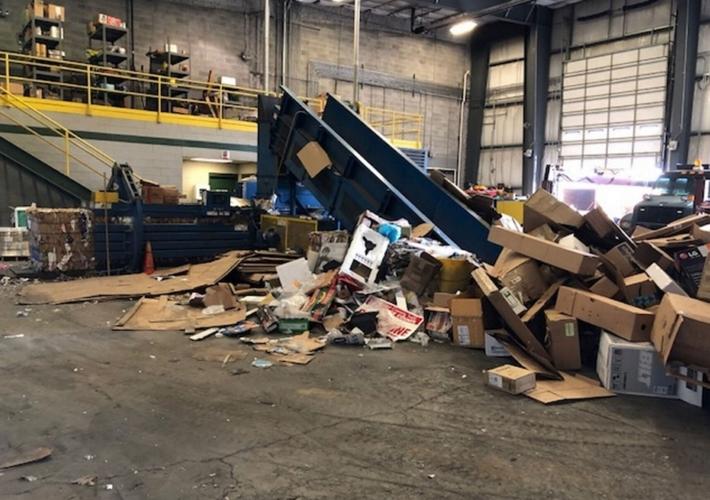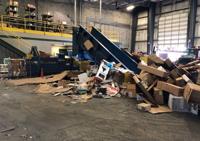CATSKILL — A delayed state approval process and rising production costs have resulted in increased costs for planned upgrades for the Hunter Transfer Station.
The Greene County Legislature’s Finance Committee unanimously approved a change order Monday totaling $17,758 for a new modular scale house set to be installed at the Hunter station.
The Legislature’s Public Works Committee previously approved the change order May 9 and the resolution will now go to the full Legislature for a vote.
The total for the modular scale house, which will provide office space and a restroom for employees at the transfer station, will cost $68,996 instead of the original estimate of $51,238.
A delay in the state approval process ended up costing the county, said Scott Templeton, the county’s Highway and Solid Waste Department superintendent, at the May 9 meeting.
“Unfortunately the state of New York did not review and approve the plans until October,” Templeton said.
The contractor building the modular home, John A. Alvarez & Sons in Hudson, said in a letter to the county the structure will be built in June with an expected delivery to the county in July.
“Because of those (state) delays, the cost of materials, the cost of construction and the cost of everything has risen,” Templeton told the Legislature of the state’s process.
Greene County Legislator Michael Bulich questioned at the May 9 meeting the need for the state review of the plan.
“We don’t give local building permits, the state is our building department,” Greene County Administrator Shaun Groden said.
Greene County Legislator Harry Lennon was also irked over the state delays.
“Do they realize the amount of unnecessary money we have to spend?” he asked.
“It’s all about control,” Greene County Legislature Chairman Pat Linger added.
Bulich has seen a pattern in slow approvals from the state for county requests, he said Tuesday.
“They seem to take their sweet time,” he said. “Most state officials in these departments are well-paid, and for the amount of time it takes for them to get things done, this was just a classic example. Over a year ago, we had it all in place and we were waiting on their approval. I don’t really understand why we need it, but because it has to do with solid waste we needed state approval. There you go, we’re paying almost $18,000 more because of the price increase for all materials. It’s not the fault of the person building the structure, in that regard. If this person had been able to build that structure at the time we approved it and the state agreed to the plans, we would have been in good shape. But that’s not what happened.”
It was not the first time Linger has seen a prolonged time frame for a state approval.
“We see that a lot more often than we should unfortunately,” he noted. “It’s the state and it doesn’t make a whole lot of sense to make a lot of waves, but that’s how it seems to be.”
The pandemic was partially responsible for the state’s delayed approval process, Groden said.
“Because of COVID the state basically went remote and things just got slowed down,” he said. “It’s difficult to criticize that so much, but I don’t know if they are fully back to the office or are they still doing a combination of remote work? But the delay is because they’re the approving agency from a building code standpoint. That project sat on somebody’s desk and then you have the supply chain problems and inflation, to boot. The vendor wasn’t going to submit the final order to the manufacturer until they got the full go-ahead, which I understand. They submitted the order and the state came back and said to change this or change that. Well, it was too late, the thing was already being built. So, they came back to us and said, ‘Since the time you got the bid, in the time we got the approval everything changed.’ The price went up, so that’s where we are.”











